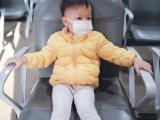June 16, 2003 (CIDRAP News) The World Health Organization (WHO) has canceled its travel warnings for several areas of China in response to the steady waning of SARS (severe acute respiratory syndrome) there.
Effective June 13, Hebei, Inner Mongolia, Shanxi, and Tianjin were removed from the list of regions the WHO recommends avoiding because of SARS. The action was based on the magnitude of SARS cases, the pattern of local transmission, and the last dates of export of cases, the WHO said in a news release.
In addition, the WHO removed Guangdong, Hebei, Hubei, Inner Mongolia, Jilin, Jiangsu, Shaanix, Shanxi, and Tianjin from the list of areas with recent local transmission of SARS. There has been no evidence of new cases in those regions for 20 days, twice as long as the incubation period.
Hong Kong, once the epicenter of the SARS epidemic, may be removed from the list of areas with recent local transmission on June 23 if it can remain case-free for another week, according to Dr. David Heymann, WHO executive director for communicable diseases, as quoted in an Associated Press report today.
WHO continues to recommend that people postpone nonessential travel to the Chinese capital of Beijing and to Taiwan.
In Canada, the number of active SARS cases has dropped from 50 to 46, and no SARS-related deaths have occurred since June 7, according to an Agence France Presse report. However, a new case was reported in the Toronto area in the last few days.
Nearly 1,000 doctors, infectious disease specialists, and scientists will meet in Kuala Lumpur, Malaysia, this week for a WHO-sponsored conference on SARS. The worlds leading SARS experts will gather to discuss the effectiveness of the SARS response so far, the possible evolution of the virus in the future, and the identification of priority areas for further investigation.
As SARS continues to subside around the world, now is a good time to discuss the handling of the disease and to plan for the future, WHO officials said. Many people believe that SARS, like most respiratory illnesses, is seasonal and will emerge again next fall. The conferees will discuss that question and other problems, including the lack of a reliable point-of-care diagnostic test and an effective treatment.
As of today, the WHO reports 8,460 cases of SARS worldwide, with only eight new cases reported since June 13. Worldwide, 799 people have died of SARS. In the United States, 72 probable cases and 329 suspected cases were reported by the Centers for Disease Control and Prevention as of Jun 13.
See also:
WHO SARS site
http://www.who.int/csr/sars/en/
CDC SARS site
http://www.cdc.gov/ncidod/sars/index.htm



















